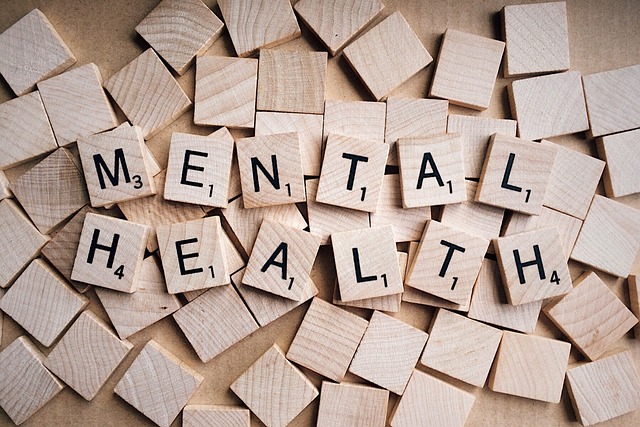Personal growth and holistic wellness begin with understanding unique self-care needs. Individuals should assess their physical, mental, and emotional health, identifying stress triggers and areas for improvement. Creating a personalized wellness plan involves integrating mindfulness exercises, tailored fitness routines, balanced diet plans, and self-care practices. This proactive approach equips individuals to manage stress, enhance emotional well-being, and foster resilience through targeted wellness solutions and professional mental health support.
Creating a personalized self-care toolkit is essential for navigating life’s challenges and cultivating personal growth. This comprehensive guide explores effective wellness solutions tailored to individuals’ unique needs. From understanding your self-care requirements, including assessing triggers and setting goals, to building blocks like crafting personalized fitness routines and adopting healthy lifestyle tips, each section provides valuable insights. Discover stress relief techniques, mindfulness exercises, emotional well-being strategies, and balanced diet plans to enhance mental health support and transform your self-care practices into powerful tools for holistic improvement.
- Understanding Your Self-Care Needs
- – Assessing personal wellness and setting goals
- – Identifying triggers and stress factors
- – Recognizing emotional and mental health cues
Understanding Your Self-Care Needs

Understanding your unique self-care needs is the first step towards personal growth and holistic wellness. Every individual has different requirements when it comes to maintaining their physical, mental, and emotional health. To truly thrive, you must identify what promotes your overall well-being. This could involve exploring various stress relief techniques, such as meditation, deep breathing exercises, or yoga, to discover what resonates best with your mind and body.
Creating a personal wellness plan involves integrating these practices into your daily routine alongside healthy lifestyle tips. Consider incorporating structured fitness routines tailored to your abilities and preferences, coupled with balanced diet plans that nourish both your body and soul. Self-care isn’t just about physical activities; it encompasses emotional well-being strategies like journaling, engaging in creative outlets, or seeking mental health support when needed. By holistically addressing these aspects, you’ll be better equipped to navigate life’s challenges and embrace a more fulfilling journey of personal growth.
– Assessing personal wellness and setting goals

Taking the time to assess your personal wellness is a crucial first step in creating a self-care toolkit for growth and transformation. It involves looking inward to identify areas that require attention and improvement, such as managing stress, cultivating mindfulness, or adopting healthier habits. By evaluating your current state of well-being, you can set meaningful and achievable goals aligned with your aspirations. These might include implementing effective stress relief techniques, incorporating regular mindfulness exercises into your routine, or designing a personalized fitness and diet plan to support your physical health.
Developing a comprehensive personal wellness plan involves integrating various components that contribute to overall well-being. This includes not only adopting healthy lifestyle tips but also focusing on emotional well-being strategies and seeking mental health support when needed. By incorporating these wellness solutions, individuals can empower themselves to take proactive measures in nurturing their minds, bodies, and spirits, ultimately leading to enhanced personal growth and fulfillment.
– Identifying triggers and stress factors

Identifying triggers and stress factors is a fundamental step in creating an effective self-care toolkit for personal growth. Individuals often overlook the sources of their stress, which can be lurking in everyday activities or specific situations. By proactively recognizing these triggers, one can implement tailored wellness solutions to address them. This might involve identifying demanding work tasks, crowded social settings, financial worries, or even certain foods that contribute to feelings of anxiety or physical discomfort. Once identified, it becomes easier to incorporate stress relief techniques into daily routines. Mindfulness exercises, for instance, can help individuals stay grounded in the present moment, thereby reducing the impact of stressful thoughts.
Developing a personal wellness plan requires integrating various healthy lifestyle tips and practices. This includes adopting fitness routines that suit individual preferences and abilities, ensuring adequate sleep, and following balanced diet plans tailored to nutritional needs. Incorporating these habits alongside self-care practices like journaling, meditation, or engaging in creative pursuits can significantly enhance emotional well-being strategies. Additionally, seeking mental health support from professionals should not be understated; it’s an essential component of a comprehensive toolkit aimed at fostering resilience and overall happiness.
– Recognizing emotional and mental health cues

Recognizing emotional and mental health cues is a vital step in crafting an effective self-care toolkit for personal growth. Individuals often overlook or misread their body’s signals, leading to overlooked opportunities for improvement. Stress, anxiety, depression, or even excitement can manifest in various subtle ways—from physical sensations to changes in mood and thought patterns. By developing a keen awareness of these cues, one can begin to understand what triggers or supports their emotional well-being. This awareness is the foundation for implementing tailored wellness solutions, whether it’s engaging in stress relief techniques like deep breathing or mindfulness exercises, adopting healthy lifestyle tips such as regular fitness routines and balanced diet plans, or incorporating self-care practices that nurture both mental and physical health.
Embracing a proactive approach to emotional well-being involves integrating these strategies into one’s daily routine. Personal wellness plans can be customized to fit individual needs and preferences, ensuring that each aspect—from nutrition to mindfulness—aligns with the person’s unique circumstances. Moreover, seeking mental health support when necessary is not a sign of weakness but rather an embodiment of self-care. Whether through professional counseling or peer support groups, accessing resources designed to enhance emotional well-being and mental resilience can significantly contribute to one’s overall quality of life.
Creating a personalized self-care toolkit is a transformative journey towards enhancing both emotional and physical wellness. By understanding your unique needs through goal-setting, identifying triggers, and recognizing cues for stress and mental health, you can develop effective strategies such as mindfulness exercises and healthy lifestyle tips. Incorporate fitness routines and balanced diet plans tailored to your preferences, ensuring stress relief techniques are accessible and practical. These tools empower individuals to take charge of their personal growth, fostering a sense of resilience and overall well-being. Remember, a holistic approach to self-care is key in navigating life’s challenges and embracing a fulfilling, balanced existence.
